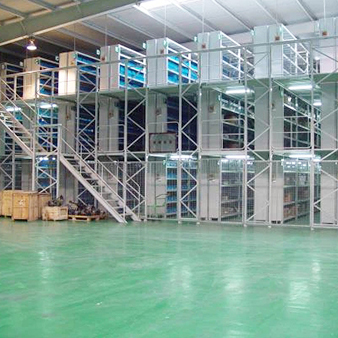To avoid deformation of storage shelves that could potentially affect the safety of stored items, follow these tips:
Choose High-Quality Shelving Units:
Start by selecting quality shelving units made of sturdy materials. The choice of materials, such as metal or heavy-duty plastic, can impact the shelf's durability.
Adhere to Weight Limits:
Always adhere to the weight limits specified by the manufacturer. Exceeding these limits is a common cause of deformation.

Properly Distribute Weight:
Distribute the weight on the shelves evenly. Avoid placing all the heavy items on one side or one shelf, as this can lead to uneven stress on the unit.
Use Support Braces and Reinforcements:
Some shelving units allow for additional support braces or reinforcements. If your storage needs are heavy, consider using these to enhance the shelving's load-bearing capacity.
Avoid Overloading:
Do not overload the shelves. Overloading can lead to bending and deformation over time. If you're running out of space, consider adding more shelves or units.
Regular Inspection:
Periodically inspect your shelves for signs of deformation, sagging, or bending. Look for any noticeable changes in the structure.
Tighten Fasteners:
Check and tighten screws, bolts, or connectors as needed. Over time, these can become loose, leading to instability and deformation.
Proper Storage Organization:
Store items with even weight distribution. For example, place heavy items like books or tools on the lower shelves and lighter items on the upper shelves.
Minimize Temperature and Humidity Fluctuations:
Extreme temperature and humidity fluctuations can affect the structural integrity of materials, especially wooden shelves. Maintain a stable environment if possible.
Proper Installation:
Follow the manufacturer's instructions for assembly and installation. Ensure that the shelving unit is securely anchored, especially if it's a wall-mounted shelf.
Prevent Impact Damage:
Avoid dropping heavy items onto the shelves, which can cause sudden deformation. Use caution when placing items on the shelves.
Avoid Climbing or Leaning:
Do not use shelves as a makeshift ladder or step stool, and discourage others from doing so. This can lead to deformation and instability.
Reinforce Over Time:
For wooden shelves, you can reinforce them by adding additional support brackets or crossbars, particularly if you notice signs of sagging.
Regular Maintenance:
Regularly maintain your shelves by cleaning them, tightening fasteners, and making necessary repairs. This can help prevent minor issues from turning into major deformations.
Professional Inspection:
If you have concerns about the safety of your storage shelves or if you notice significant deformation, consider having a professional inspection to assess the structural integrity.
By following these tips and practicing good maintenance and storage habits, you can minimize the risk of shelf deformation, ensuring that your stored items remain safe and secure. Proper care and attention to detail can help extend the life of your storage shelves.